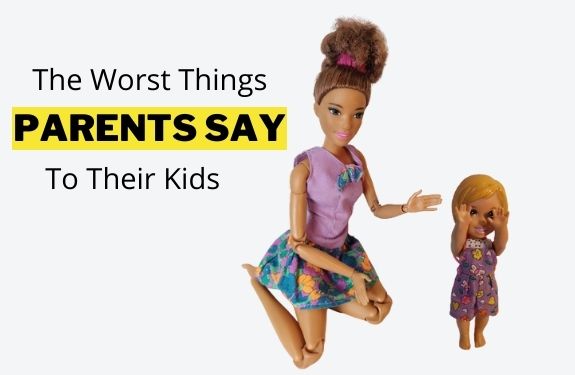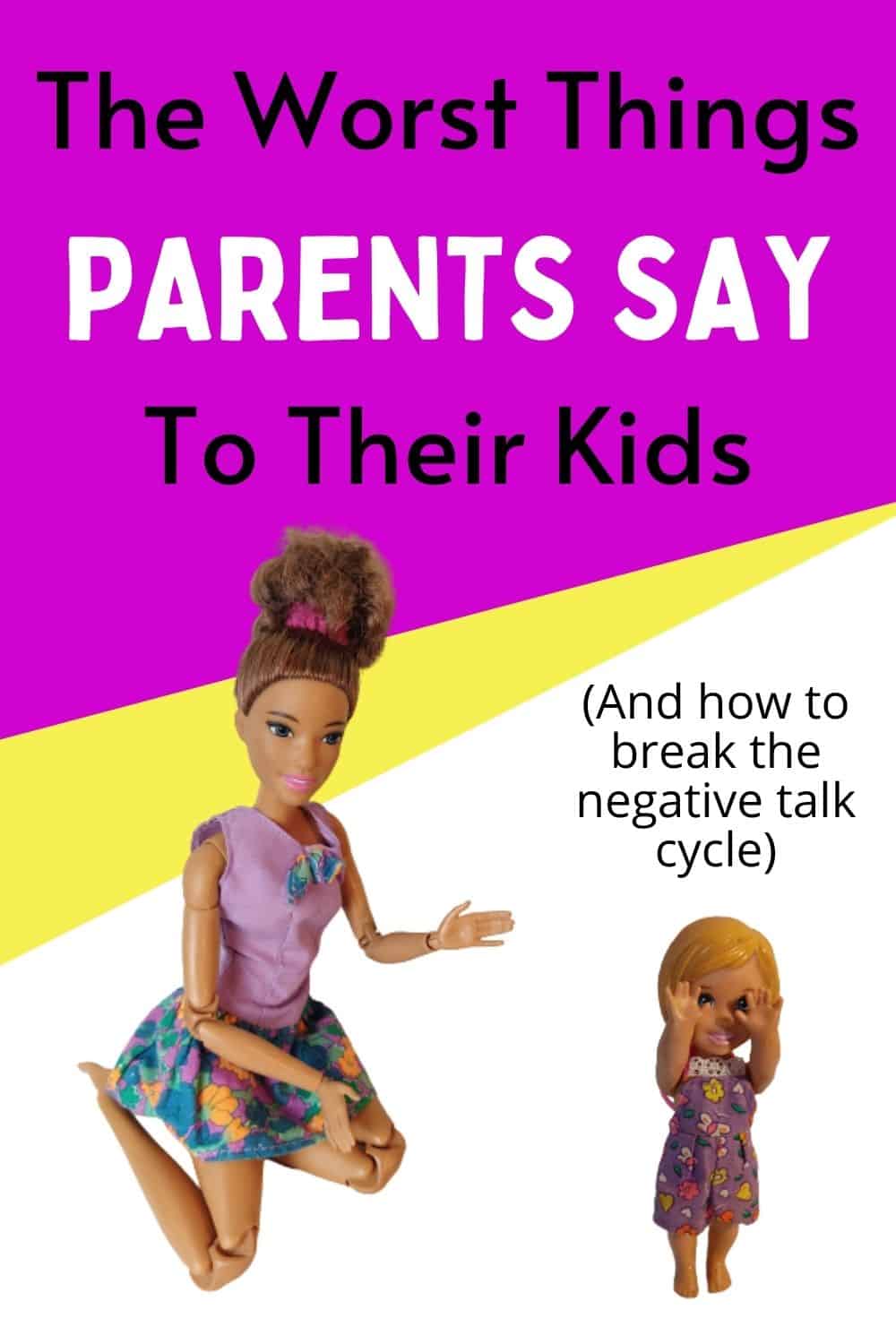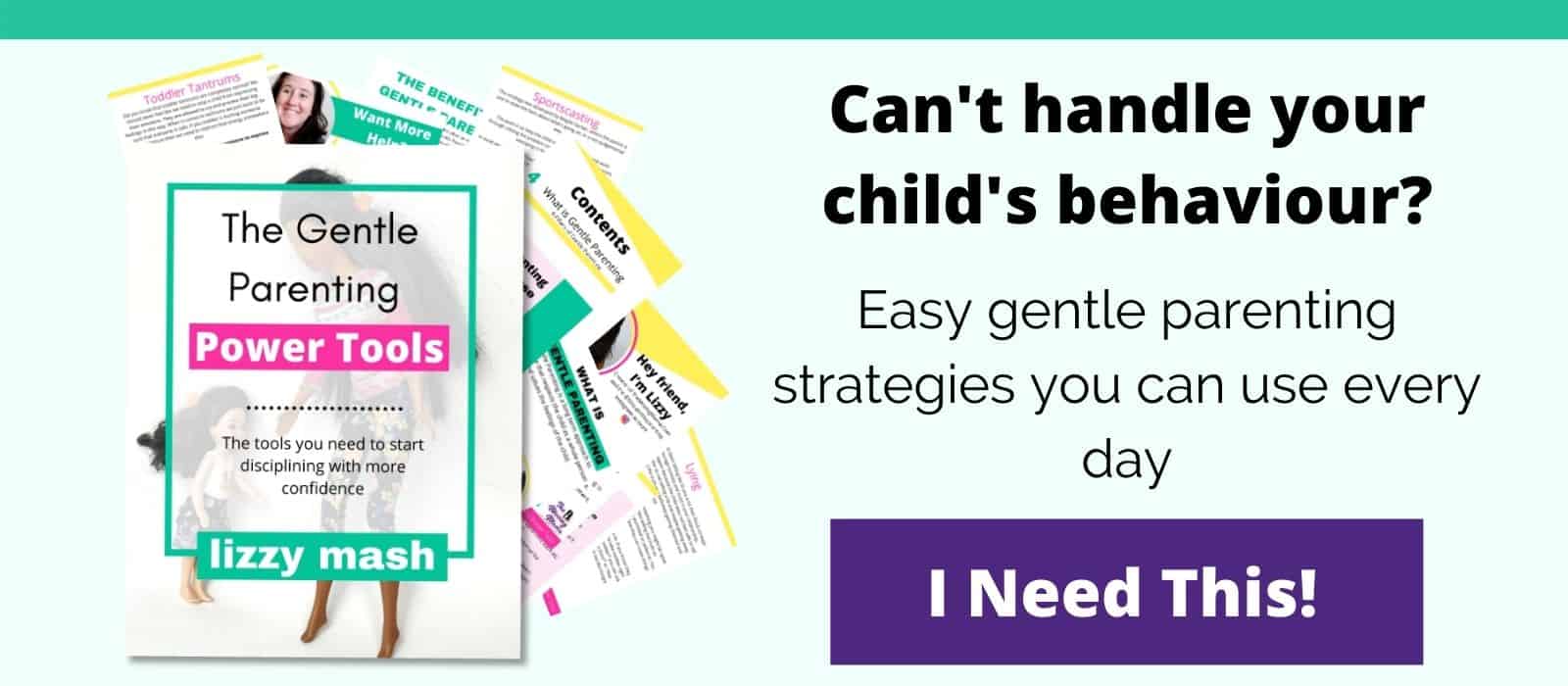
Find out what are some of the worst things parents can say to their kids, why they’re so damaging, and what positive phrases you can start using instead.
Why Words From Parents Matter
Parents are highly influential in their child’s life because children look to their parents for love, security and attachment. When parents speak cruel words to their child it is much worse than hearing it from anyone else.
Children deserve positive interactions with their parents with loving phrases, but too many children (and adults) daily hear some of these worst things that parents say and it deeply damages their self-esteem and confidence.
Words have the power to build someone up or tear them down.
(This post might contain affiliate links, which means if you happen to buy a product I love then I may get a commission – at no extra cost to you! More information here.)
How the Worst Things Parents Can Say to Their Kids Creates Damage
As a parent, it’s important to be extremely mindful of how you talk to your child.
If you’re saying any of these worst things to your child on a regular basis, not only are you hurting their self-esteem and confidence, but you’re also hurting your relationship with your child.
Dr. John Gottman found that relationships need the 5:1 ratio (read about it here) which simply means for every negative interaction you have with your child you need to make it up with 5 positive interactions.
If you have a bad habit of speaking negative things to your kids you might be inadvertently creating a toxic relationship between you.
Let’s look at the worst things parents are known to say to their children and how to correct this type of language, even if it’s been a bad habit passed down for generations.
A lot of the worst things parents say to their kids are just plain cruel, but there are also a lot of phrases that just need to be reworded for the parent to get their point across without hurting the child in the process.
Related: 10 Signs of Bad Parenting & How to Avoid Them
The Very Worst Things Parents Can Say to Their Kids
“Stop crying or I’ll give you something to cry about.”
Threatens the child and does not allow them to express their feelings.
“Boys don’t cry”
This encourages boys and young men to suppress their feelings and not be able to get in touch with themselves.
“This toy is just for boys/girls”
Makes a child confused why they’re not allowed to play with something they like, pushes gender stereotypes.
“You’re driving me crazy.”
Rejects the child, makes them feel like a burden.
“Ugh, daddy/mommy is making me so angry!”
It’s not good to speak badly of the child’s other parent, it can create insecurity.
“You’re looking chunky”
Body shaming.
“Why aren’t you more like your sibling?”
Comparison to siblings hurts a child’s self esteem.
“I wish I never became a parent”
Makes the child feel responsible for the parent’s problems in life.
“No one likes a cry baby”
Shames the child so they won’t express their feelings through crying.
“No one cares”
Rejects the child and makes them feel alone in the world.
“Stop throwing a pity party”
Often said while ignoring real concerns a child has (for example when a child is experiencing depression).
“Stop talking to me”
Rejects the child and makes them feel like what they say is not important.
“Leave me alone”
Makes the child feel like a bother.
“Why are you so lazy? You’ll never achieve anything”
Breaks the child’s self-esteem. Makes them believe something about themself that probably isn’t true.
“You’re stupid”
Breaks the child’s self-esteem. Makes them believe something about themself that probably isn’t true.
“I never wanted another baby”
Makes the child feel unwanted and like they don’t belong.
“I am ashamed that you are my child”
Makes the child ashamed of themselves.
“I reject you as my child, I am not your parent anymore”
Ruins a child’s attachment, makes them feel alone and unloved in the world.
“Why are you like this?”
Refuses to acknowledge root issues in a child’s behaviour to help them.
“You’re making up your depression for attention”
Neglects a child’s serious issue.
“You are the most difficult child ever”
Makes a child feel bad and believe something that isn’t true.
“That’s weird, you shouldn’t do or say that in front of people”
Makes a child feel ashamed for who they are.
“You’ll never succeed with your art, you should just quit”
Projects expectation of success and belittles a child’s passion.
“It’s just a phase. Either you’re straight or I don’t love you”
Homophobic while not acknowledging a child’s truth, while also taking away their security and attachment in their parent.
“When you have a baby…”
Starts to create an expectation that the child must have their own baby when they grow up.
“When you get married…”
Starts to create an expectation that the child must get married when they grow up.
“Maybe one day your husband/wife will…”
Assumes a child’s sexuality and/or that they must get married.
“You’re not as beautiful/handsome as others”
Creates self image problems.
How to Speak More Positively To Your Child
If you’ve been saying any of these negative things to your child take some time to evaluate why they may have been harmful.
You can start to speak differently to your child, but if it has been a pattern for a long time (or it’s how your parents spoke to you) then this can be a really hard habit to change.
On this website we promote Gentle Parenting and believe in the importance of a positive connection between parent and child in order to see better behaviour.
You can read here about how to speak more positively to your child.
One important thing to keep in mind is to always think before you speak. Take a deep breath and pause if you have to, and think about how you would feel if someone you loved said the same thing to you.
It takes a lot of practice but don’t give up. You can stop saying these negative things to your child, no matter how old they are.
Do You Have A Toxic Parent?
Maybe this list of worst things parents can say to their kids hits too close to home for you because this is what you always heard from your own parents.
Parents should not say these things to their kids, and you might have a toxic parent. They might not ever change or apologize for the things they have said to you, which sucks. You deserve to have a parent who would try harder and not hurt you in these ways. Sometimes it can be so bad it’s verbal abuse which is wrong.
If you’re living independently from your parents then it’s important to create boundaries that are best for you to protect yourself from their words.
Conclusion of the Worst Things Parents Can Say to Their Kids
These have been the worst things parents can say to their kids.
These negative phrases can be absolutely destructive to a child, and if said continuously throughout their life can deeply damage their self-esteem, ability to love, confidence, etc.
It’s important to work towards changing how you speak to your child so you don’t continue with these negative, harmful words.

Read Next
6 Ways to Stop Being an Angry Mom
How to Praise Your Kids (without making them dependent on validation)

